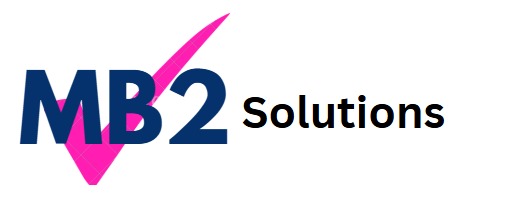
SAQA ID
48872

Credits
131
The purpose of this qualification is to enhance readiness and provide entry into the areas of Systems Development at NQF level 5. It prepares learners for entry into the workplace or as undergraduate study in the Systems Development areas covered, providing them with the necessary knowledge needed for further study in the fields of Information Technology and Computer Sciences at Higher Education level.
The qualification is addressing the need in the workplace for nationally recognised qualifications, based on unit standards, that will allow people with workplace experience in the Systems Development areas covered, to request assessments and get recognition for prior learning.
A qualifying learner will be able to communicate effectively with fellow IT staff & users of information technology, understanding the role of technology in a business context and to be able to address business problems with appropriate information technology solutions. Learners will be able to apply the principles of creating computer software by carrying out, under limited supervision, a task of reasonable size to demonstrate an understanding of the knowledge, techniques & skills needed in one or more area of majoring/specialisation that the qualification offers.
Rules regarding Fundamental and Core:
- All fundamental outcomes are compulsory for this qualification (31 credits).
- All core outcomes are compulsory (75 credits).
Rules regarding Electives:
- A minimum of 25 elective credits needs to be completed out of one of the elective specialisation fields listed in the table below. If a programming specialisation is chosen, then all the unit standards in the chosen fields must be completed together, to be recognised as a specialisation stream.
- A learner may specialise in more than one elective stream, as long as the rule listed above has been adhered to.
- The qualification description will list the fields of specialisation that have been completed (according to the rules of the previous two points) on the qualification document.
- Additional standards from any other SAQA field or sub-field may be added to the listed electives.
The minimum entry requirement for this qualification is:
- Grade 12 (Competency in the English language & Mathematical Literacy) OR,
- NQF Level 4 qualification.

Pricing

Delivery Mode
Hybrid Full Time/Online

Campus Location
Dynamic
The Qualification Is Designed to
- Provide qualified learners with an undergraduate entry into the fields of Information Communication Technology (ICT) and Computer Sciences, specialising in the Systems Development area
- Prepare qualified learners for initial employment into the ICT and related industries. Qualified learners will have a solid understanding of computer industry concepts and to able to work in areas of Systems Development with intermediate technical complexity.
- Allow the credits achieved in National Certificates relating to Information Technology at NQF level 4 to be used as prior learning for this qualification, where applicable.
- Allow people with workplace experience in the Systems Development areas covered, to request assessments and get recognition for prior learning.
- Allow the qualification to be acquired in the traditional way of formal study as well as in the workplace, through Learnerships Schemes or Recognition of Prior Learning (RPL).
- Assist with professionalisation across the Information Technology Sector. It is intended to allow qualified learners to gain membership of registered professional bodies in the ICT industry.
Exit Level Outcomes
A learner will be able to:
- Communicate effectively with fellow IT staff & users of information systems
- Understand the role of technology in the business context.
- Demonstrate an understanding of problem solving techniques, and how to apply them in a systems development environment
- Demonstrate an understanding of Systems Development, with all its implications
- Relate business problems and information technology solutions
- Apply the principles of creating computer software
Integrated Assessment
Development of the competencies may be through a combination of formal and informal learning, self-learning, training programmes and work-based application. The practical, applied, foundational and reflexive competencies demonstrated for the group of assessment criteria in this qualification, must prove that the whole competence is more than the sum of the parts of the competencies.
Providers should conduct diagnostic and formative assessment. Formative, continuous and diagnostic assessments should also take place in the work place, if applicable. The learner should also be able to assess him or herself and determine readiness for a summative assessment against this qualification.
During integrated assessments the assessor should make use of formative and summative assessment methods and should assess combinations of practical, applied, foundational and reflexive competencies. Input to completing the Integrated Assessment typically makes use of combinations of the following assessment methods:
- Time-constrained written examinations
- Coursework Evaluations
- Continuous Evaluation
- Practical Evaluation
- Evaluation of Portfolios of Evidence

